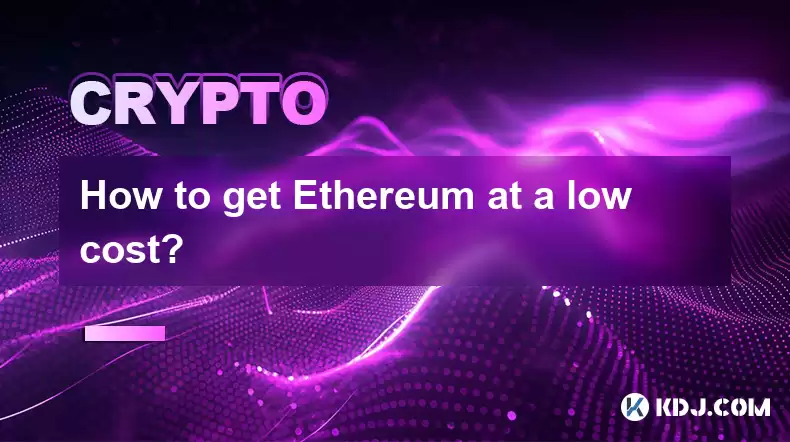-
 Bitcoin
Bitcoin $119000
-2.21% -
 Ethereum
Ethereum $4315
1.01% -
 XRP
XRP $3.151
-3.11% -
 Tether USDt
Tether USDt $0.0000
0.00% -
 BNB
BNB $808.5
-0.71% -
 Solana
Solana $175.8
-4.21% -
 USDC
USDC $0.9999
0.00% -
 Dogecoin
Dogecoin $0.2250
-3.92% -
 TRON
TRON $0.3469
1.77% -
 Cardano
Cardano $0.7818
-3.81% -
 Chainlink
Chainlink $21.47
-2.10% -
 Hyperliquid
Hyperliquid $43.30
-6.81% -
 Stellar
Stellar $0.4370
-2.84% -
 Sui
Sui $3.682
-4.40% -
 Bitcoin Cash
Bitcoin Cash $590.8
2.67% -
 Hedera
Hedera $0.2484
-5.20% -
 Ethena USDe
Ethena USDe $1.001
0.00% -
 Avalanche
Avalanche $23.10
-4.29% -
 Litecoin
Litecoin $119.2
-3.96% -
 Toncoin
Toncoin $3.409
0.90% -
 UNUS SED LEO
UNUS SED LEO $9.016
-1.29% -
 Shiba Inu
Shiba Inu $0.00001304
-3.82% -
 Uniswap
Uniswap $11.18
1.33% -
 Polkadot
Polkadot $3.913
-3.51% -
 Cronos
Cronos $0.1672
-3.08% -
 Dai
Dai $1.000
0.02% -
 Ethena
Ethena $0.7899
-4.70% -
 Bitget Token
Bitget Token $4.400
-1.23% -
 Pepe
Pepe $0.00001132
-5.93% -
 Monero
Monero $257.9
-6.44%
How to get Ethereum at a low cost?
To acquire Ethereum cost-effectively, use dollar-cost averaging, compare exchange fees, consider staking, and prioritize security with strong passwords and hardware wallets.
Mar 30, 2025 at 01:35 am

Exploring Cost-Effective Ethereum Acquisition Strategies
Acquiring Ethereum (ETH) at a low cost requires a multi-faceted approach, considering various factors and strategies. It's not simply about finding the absolute cheapest price at any given moment, but rather employing tactics to minimize your overall expenditure and maximize your long-term returns.
One of the most fundamental aspects is timing your purchase. The price of ETH, like all cryptocurrencies, is highly volatile. Market downturns can present opportunities to buy at lower prices, but predicting these dips accurately is challenging. Dollar-cost averaging (DCA) is a popular strategy to mitigate risk associated with market volatility.
Dollar-Cost Averaging (DCA) for Ethereum
Dollar-cost averaging involves investing a fixed amount of money at regular intervals, regardless of the price. This strategy reduces the impact of price fluctuations. Instead of investing a lump sum and potentially buying high, DCA smooths out your average purchase price over time.
- Choose a regular interval: Weekly or monthly investments are common.
- Determine your investment amount: This should be an amount you're comfortable investing regularly.
- Automate the process: Many exchanges offer automated recurring buy features.
This method helps to reduce the emotional aspect of investing, preventing impulsive decisions based on short-term price movements. It's a relatively passive yet effective approach for long-term ETH accumulation.
Utilizing Cryptocurrency Exchanges
Choosing the right cryptocurrency exchange significantly impacts your acquisition costs. Fees vary considerably between platforms. Some exchanges charge higher trading fees, while others might have lower deposit or withdrawal fees. It's crucial to research and compare the fee structures of different exchanges before making a choice.
- Compare trading fees: Look for exchanges with low maker/taker fees or tiered fee structures that reward higher trading volume.
- Assess deposit/withdrawal fees: Consider the fees associated with depositing fiat currency and withdrawing ETH.
- Check for security: Prioritize reputable exchanges with robust security measures to protect your funds.
Lower fees directly translate to lower acquisition costs, making careful exchange selection a key factor in cost-effective Ethereum acquisition.
Exploring Alternative Acquisition Methods
Beyond traditional exchanges, alternative methods exist for acquiring ETH at potentially lower costs. Staking, for example, allows you to earn rewards by locking up your ETH and participating in the network's consensus mechanism. This passive income stream can offset some of your initial investment costs over time.
However, staking requires a certain amount of ETH to begin with. Furthermore, it involves technical understanding and risk, as your staked ETH is locked for a period. You need to carefully research the staking options available before committing your funds.
Leveraging Decentralized Exchanges (DEXs)
Decentralized exchanges (DEXs) offer a different approach to acquiring ETH. They operate without a central authority, potentially offering lower fees compared to centralized exchanges. However, DEXs often require a higher level of technical understanding and can have more complex user interfaces.
- Understand the risks: DEXs are generally less regulated than centralized exchanges, potentially exposing you to higher risks.
- Research different DEXs: Compare fees, liquidity, and security features before using a DEX.
- Learn about decentralized finance (DeFi): Understanding DeFi protocols is crucial for navigating DEXs effectively.
DEXs offer a degree of anonymity and control that centralized exchanges lack, but this comes with added complexity and responsibility.
The Importance of Security
Regardless of your chosen acquisition method, prioritizing security is paramount. Always use strong, unique passwords, enable two-factor authentication (2FA), and be wary of phishing scams. Store your ETH in secure wallets, preferably hardware wallets, to protect against theft or loss. Neglecting security can negate any cost savings achieved through clever acquisition strategies.
- Use strong passwords: Avoid easily guessable passwords and use password managers.
- Enable 2FA: This adds an extra layer of security to your accounts.
- Be cautious of phishing: Don't click on suspicious links or provide your private keys to anyone.
- Use secure wallets: Hardware wallets offer the highest level of security.
Remember, security should be a top priority when dealing with cryptocurrencies, regardless of the acquisition method.
Frequently Asked Questions
Q: Is buying Ethereum directly from an exchange always the cheapest option?
A: No, while convenient, exchange fees can vary widely. Strategies like DCA and utilizing DEXs can potentially lead to lower overall costs.
Q: What are the risks associated with DCA?
A: The primary risk is that the price of ETH could continue to decline during your investment period, resulting in a higher average purchase price than if you had invested a lump sum at a low point. However, this risk is mitigated by the reduced impact of market volatility.
Q: How can I minimize fees when buying Ethereum?
A: Compare fees across different exchanges, consider using DEXs (with caution), and potentially utilize platforms with tiered fee structures that reward higher trading volume. Also, be mindful of deposit and withdrawal fees.
Q: Are there any tax implications for buying and holding Ethereum?
A: Yes, the tax implications vary depending on your jurisdiction. Capital gains taxes are typically applicable when you sell ETH at a profit. Consult a tax professional for advice specific to your situation.
Q: What is the safest way to store my Ethereum?
A: A hardware wallet is generally considered the most secure option for storing ETH, offering offline protection against hacking and malware. However, even with a hardware wallet, maintaining good security practices is crucial.
Disclaimer:info@kdj.com
The information provided is not trading advice. kdj.com does not assume any responsibility for any investments made based on the information provided in this article. Cryptocurrencies are highly volatile and it is highly recommended that you invest with caution after thorough research!
If you believe that the content used on this website infringes your copyright, please contact us immediately (info@kdj.com) and we will delete it promptly.
- Arc Blockchain: Circle's Layer-1 Play Amidst $428 Million Loss
- 2025-08-12 20:30:13
- XRP Price: Riding the Bull Cycle Wave or Hitting a Wall?
- 2025-08-12 20:50:12
- Cloud Mining in 2025: Chasing Passive Income and High Returns
- 2025-08-12 20:30:13
- XRP Price Forecast: Can XRP Hit $8, $12.60, or Even $100? Surge Drivers Analyzed
- 2025-08-12 21:10:13
- SUI Analyst Predicts Potential 7x Setup: Don't Ignore This Crypto!
- 2025-08-12 21:50:12
- Solana Price, Meme Coins, and 100x Gains: What's the Hype?
- 2025-08-12 20:50:12
Related knowledge

How to purchase Aragon (ANT)?
Aug 09,2025 at 11:56pm
Understanding Aragon (ANT) and Its PurposeAragon (ANT) is a decentralized governance token that powers the Aragon Network, a platform built on the Eth...

Where to trade Band Protocol (BAND)?
Aug 10,2025 at 11:36pm
Understanding the Role of Private Keys in Cryptocurrency WalletsIn the world of cryptocurrency, a private key is one of the most critical components o...

What is the most secure way to buy Ocean Protocol (OCEAN)?
Aug 10,2025 at 01:01pm
Understanding Ocean Protocol (OCEAN) and Its EcosystemOcean Protocol (OCEAN) is a decentralized data exchange platform built on blockchain technology,...

How to invest in Kyber Network Crystal v2 (KNC)?
Aug 12,2025 at 05:21pm
Understanding Kyber Network Crystal v2 (KNC)Kyber Network is a decentralized liquidity hub built on the Ethereum blockchain that enables instant token...

Where can I buy UMA (UMA)?
Aug 07,2025 at 06:42pm
Understanding UMA and Its Role in Decentralized FinanceUMA (Universal Market Access) is an Ethereum-based decentralized finance (DeFi) protocol design...

What exchanges offer Gnosis (GNO)?
Aug 12,2025 at 12:42pm
Overview of Gnosis (GNO) and Its Role in the Crypto EcosystemGnosis (GNO) is a decentralized prediction market platform built on the Ethereum blockcha...

How to purchase Aragon (ANT)?
Aug 09,2025 at 11:56pm
Understanding Aragon (ANT) and Its PurposeAragon (ANT) is a decentralized governance token that powers the Aragon Network, a platform built on the Eth...

Where to trade Band Protocol (BAND)?
Aug 10,2025 at 11:36pm
Understanding the Role of Private Keys in Cryptocurrency WalletsIn the world of cryptocurrency, a private key is one of the most critical components o...

What is the most secure way to buy Ocean Protocol (OCEAN)?
Aug 10,2025 at 01:01pm
Understanding Ocean Protocol (OCEAN) and Its EcosystemOcean Protocol (OCEAN) is a decentralized data exchange platform built on blockchain technology,...

How to invest in Kyber Network Crystal v2 (KNC)?
Aug 12,2025 at 05:21pm
Understanding Kyber Network Crystal v2 (KNC)Kyber Network is a decentralized liquidity hub built on the Ethereum blockchain that enables instant token...

Where can I buy UMA (UMA)?
Aug 07,2025 at 06:42pm
Understanding UMA and Its Role in Decentralized FinanceUMA (Universal Market Access) is an Ethereum-based decentralized finance (DeFi) protocol design...

What exchanges offer Gnosis (GNO)?
Aug 12,2025 at 12:42pm
Overview of Gnosis (GNO) and Its Role in the Crypto EcosystemGnosis (GNO) is a decentralized prediction market platform built on the Ethereum blockcha...
See all articles

























































































